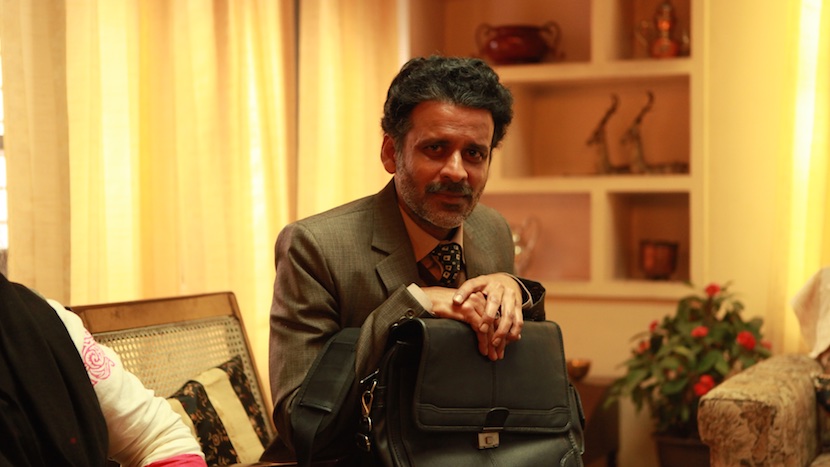Back from 'Aligarh'

Synopsis: Professor Ramchandra Siras is videographed illegally while he makes love with his male partner, a cycle rickshaw driver. Siras is suspended from Aligarh University. LGBT activists and senior lawyers persuade him to file a case in the Allahabad High Court, which he eventually wins. All this while, his story is maturely covered by a Delhi based journalist Deepu Sebastian (played by Rajkummar Rao). One day before the court order is expected to reach the University, Siras commits suicide.
The natural tendency to react to any kind of repression, wrongdoing or injustice is to fight back, or at least try doing so. But there are exceptions. The story of Prof Siras (essayed by Manoj Bajpai) in ‘Aligarh’ is one. Siras doesn’t revolt, nor does he curse his oppressors or lament their ignorance and social backwardness. Instead Siras prefers to be alone (not lonely). And this aloneness is beautifully captured by director Hansal Mehta.
The brilliance of the film also lies in the fact that you feel more sympathy for Siras than hate for his employer, the Aligarh (Muslim) University. The thought of an individual being bothered is not in your face, it doesn’t let you play a hip hop song after you start your car in the parking lot. It not only makes you think, and it makes you cringe at societal responses.
The dichotomy in Indian society is underlined in the scene where Deepu makes love with his female editor. They manage to find some privacy on their office terrace. It’s clear the attraction is only physical, there’s no love involved. Still, because they are so-called heterosexual, they ‘get away’ with making out. This is juxtaposed with Siras remembering himself and his partner in bed, sweet memories of expressing their feelings for each other.
The film also talks about the urge of the majority to define boundaries for the minority. The aspect of insecurity and intolerance of the so-called heterosexual majority towards the homosexual minority is an issue which needs 25 more Aligarhs. I believe change is faster when you talk about it more often.
In yet another telling scene, Deepu hugs Siras while bidding goodbye. Siras keeps his hands down, reluctant to touch his buddy. You start thinking what thoughts must have come to Siras’ mind making him refrain from participating in a simple hug. You question the society you live in, once more.
A subtle reference is made to the outsider status of Siras in Aligarh. He is a Marathi-speaking fellow in the Hindi-speaking region of India. To add to it, he earns the post of head of the languages department in his University. From the societal point of view, he is gay too. In other words, an outcast.
This is easily Manoj Bajpai’s best performance till date. At the same time, a mature and poignant script by Apurva Asrani and seamless direction by Mehta deserves a standing ovation. Nowhere in the film (including the love-making scenes) do you feel as if there is something different, out of the norm, strange perhaps. All you see on screen are pure and natural human emotions.
Bajpai deserves one more paragraph because he has portrayed gay men as they are: normal human beings like you and me. He and the movie busts stereotypes. Queers do not have a feminine gait, neither does their palm hang in the air. He is just a ‘normal’ character from real and not reel life.
When asked about this Bajpai says, “All my gay friends and teachers have been like this. They do not wear pink caps or have a feminine body figure. Secondly, Siras’ sexual orientation was the least of my concern. His emotions were my priority. Sex may be the peak but it isn’t the origin of love.”
Aligarh is definitely in the league of Bandit Queen, Satya and Swades. It’s fabulous that India has taken note of this film. Students of Aligarh Muslim University had taken out a procession recently, demanding the film be screened in Aligarh as against a BJP Mayor, and some fringe groups call to ban it.
Indians are talking more about sexuality after ‘Aligarh’. And of freedom of choice. I hope this will feed into a legislation by Parliament decriminalising homosexuality. And that New Delhi will learn from Aligarh.
Next Story



